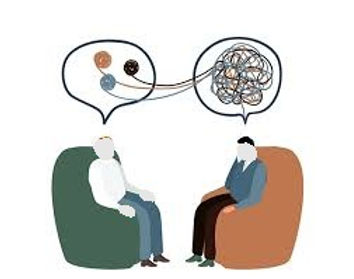Embracing Vulnerability
- Yanky Sigal

- Feb 26
- 2 min read
Updated: Jun 15
In a world that often praises strength, independence, and self-sufficiency, vulnerability can feel like a weakness. But in truth, vulnerability is the foundation of all meaningful relationships. It is through openness and authenticity that we forge deeper connections - with ourselves, with others, and ultimately, with Hashem.
The first step in developing authentic relationships is learning to be vulnerable with ourselves. This means embracing our imperfections, acknowledging our struggles, and being honest about our emotions.
Recognizing our vulnerabilities is not about self-pity, but about self-awareness. When we allow ourselves to see our weaknesses and accept them, we open the door to growth. The Gemara (Yoma 86b) teaches that when one repents out of love, even his sins become merits. Why? Because the very act of acknowledging one’s shortcomings is transformative. It is an act of vulnerability, and through it, one builds a stronger, more honest self.
One of the most powerful examples of vulnerability in human relationships is found in the story of Yosef and his brothers. After years of separation and pain, Yosef reveals himself to his brothers with the words, “Ani Yosef” - “I am Yosef” (Bereishis 45:3). This moment is raw and unguarded; Yosef does not approach them as a vengeful ruler but as a brother yearning for reconciliation.
The ability to express our true selves, to admit our mistakes, and to show our emotions is what creates deep and lasting relationships. When we hide behind masks of perfection, we create barriers. When we open up, we invite connection.
Perhaps the most profound expression of vulnerability is in our relationship with Hashem. Tefillah (prayer) is an act of vulnerability; it is the willingness to stand before Hashem and say, “I need You.” The greatest tefillos in Tanach were not composed in moments of triumph, but in times of deep pain and longing - whether it was Chana’s tearful plea for a child (Shmuel I 1:10) or Dovid HaMelech’s cries in Tehillim.
The ultimate act of vulnerability is bitachon (trust in Hashem). It requires surrendering control, acknowledging that we are not the masters of our fate. The Kotzker Rebbe famously said, “Hashem is only where you let Him in.” When we pretend to have everything figured out, we block Hashem’s presence. But when we turn to Him with honesty, with our fears, our hopes, and our brokenness, we invite Him into our lives.
Chazal teaches us that the word “modeh” means both to admit and to give thanks. True gratitude to Hashem comes from a place of vulnerability - admitting that we are not self-sufficient, that we rely on His kindness.
Vulnerability is not weakness; it is strength. It is what allows us to grow, and to connect. By being honest with ourselves, by opening our hearts to others, and by surrendering to Hashem with trust, we unlock the depth and beauty of our relationships.



